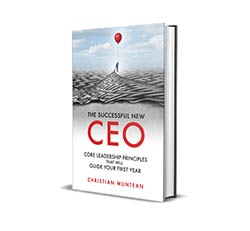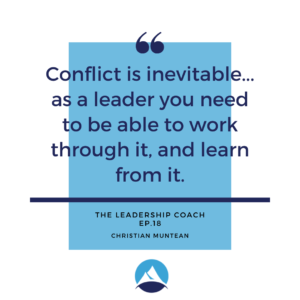How Does Culture Improve Performance?

 A company wanted to develop a new culture. There wasn’t really anything wrong with the company. But, there also wasn’t anything that felt really right. The company just…was. Like most conversations around culture, there was a champion for the cause and a lot of skeptics.
A company wanted to develop a new culture. There wasn’t really anything wrong with the company. But, there also wasn’t anything that felt really right. The company just…was. Like most conversations around culture, there was a champion for the cause and a lot of skeptics.
Culture is an abstract feeling topic. Kind of on the fuzzy bunny side of the “getting stuff done” end of the spectrum. This was a practical company. Not big on fuzzy bunnies.
These Bunnies are Powerhouses
We spent time discussing their values and vision for the company. Culture is very much about a shared sense of values and vision. But culture is also about more.
Values and vision have to be translated into shared types of decisions and behaviors. So, we pushed the conversation down into what kinds of policies or procedures best reflect or help manifest their values and vision. We discussed how employees would be trained and coached. The conversation even expanded to how physical space was used. How that would better support the desired culture.
Over the next few months, excitement and morale grew among the management team. They could feel the difference in terms of how their teams operated, how services were provided, and how people related. But the company was still scoring low in customer satisfaction evaluations. This was confusing – because they knew they were providing a better service to their customers.
As we looked at it, we realized that hiring practices hadn’t changed along with everything else. Specifically, as it related to hiring and training their sales force. So, while the company had made tremendous changes, the customer-facing side was still doing things the old way. Once this was discovered, they reviewed their hiring and onboarding processes. They changed their sales and approach to customer service to bring them into alignment with their desired culture.
Customer satisfaction scores rose. The company now operates more efficiently, with lower overhead, is easier to manage, and is producing better results. Both for customers and on their bottom line. By changing their culture – they changed everything.
What is Culture?
Culture is what occurs whenever a group of people adopts a common way of seeing and relating to the world. Culture follows a progression that looks a little like this:
Shared core beliefs about life, the world, and everything else.
Those beliefs translate into core values.
Core values translate into clear priorities which are the ingredients of vision.
Values, priorities, and vision – help determine:
- How decisions are made and what they tend to look like.
- Behaviors that are acceptable or unacceptable.
That’s the culture equation. In a tidy little nutshell.
Every Single Organization Develops Its Own Culture.
Some develop subcultures as well. One department has this way of doing things – another department has that way. Most of the time, culture is developed accidentally. Typically, it reflects (or reacts to) the values, habits, and preferences of the most dominant leaders. Sometimes this works. Often it doesn’t. It’s never sustainable without intentionality.
Accidental cultures are very hard to maintain or transfer. Especially if there isn’t understanding or intentionality around what makes them tick. They are prone to shifting and changing with the leadership personalities that come and go.
Intentional culture comes from taking a little time discussing the abstract. Finding or creating common ground. And then translating that common ground into concrete reality.
Culture Eats Strategy for Lunch
Let’s say someone wants to get in better shape, to become a little healthier. They hire someone to develop a nutrition and fitness plan that is realistic, practical, and perfect for them. Except they don’t want to change their lifestyle at all. It’s not going to work. The same is true for culture.
Or as Mark Fields, former CEO of Ford, said, “You can have the best plan in the world, and if the culture isn’t going to let it happen, it’s going to die on the vine.”
I watch companies that develop eminently actionable and reasonable plans – only to fall victim to their own culture.
How Do You Shape or Change Your Culture?
With objectivity, intentionality, accountability, and patience. You can start by answering these questions:
What values are more important to us – and what makes them important?
If we really believe those values are important – what should our priorities be in terms of:
- What we want to accomplish?
- How we lead?
- How we relate to each other?
- How we relate to our customers and business partners?
What kind of structure (if any) would help us be consistent in those areas?
Is there any structure that we currently have that makes consistency difficult?
Take good care,
Christian
Further Reading:
The Leader’s Guide To Culture Change
Vision Building Sprints
If you or your team are wrestling with defining your vision and would like help, I’m offering the opportunity for a “Vision Sprint”. This is a dynamic calibrating exercise. We will tightly dial in on your vision for the year and the key steps you need to take to get there. I’m offering either individual sessions ($2500) or team sessions ($4000).
Contact me at christian@christianmuntean.com if interested in learning more or setting up a time.
The Successful New CEO – FREE BOOK OFFER
As an executive coach, I’ve found that the experiences for new executives (or experienced executives in new roles) tend to touch on familiar themes. No one’s situation is the same. But there are common principles that, when followed, do guide executives to success. I introduce those core principles in my new book, The Successful New CEO. I’d like to give you a free copy (just pay shipping)!
situation is the same. But there are common principles that, when followed, do guide executives to success. I introduce those core principles in my new book, The Successful New CEO. I’d like to give you a free copy (just pay shipping)!
The book is divided into four parts:
- Becoming an Executive: Leaders can only lead out of who they are. How do you become the kind of person who successfully and gracefully inhabits this role?
- Seven Essential Executive Skills: The skills that earned you this new role may not be the ones that you need in the role. What are the key leadership skills that become even more important at the executive level?
- Leading Your Leadership Team: More than likely, you’ll be leading other leaders. How do you lead a confident, effective leader? How do you build a team out of leaders?
- First Things: Where do you start? How do you quickly build credibility and engagement? What is too fast or too slow?
The goal of The Successful New CEO is to help you quickly gain the confidence of your team, successfully address the issues you will discover, score early wins, and set a course for a fruitful future.
If you’d like to see how this book will benefit you or someone you know, I’d like to make it available to you for free! Click Here.
Find the value of your company with my free assessment tool: The Value Builder System
The Value Builder System™ is a 13-minute online questionnaire that evaluates your business on the eight factors that contribute more to its attractiveness and value. These factors are scored on a scale of 1-100. Businesses that score over 80 are likely to command 70%-100% higher value than others.
In my podcast, THE LEADERSHIP COACH, we explore effective, high impact and enjoyable leadership. We talk about personal development and the attributes that all effective leaders possess. I interview other leadership experts who share their knowledge and tips to help you build the confidence to lead and learn the habits of good decision-making.
Opportunities
Free Resource: How To Accomplish More Without Doing More is a workbook I created to walk leaders through a process of helping you own your calendar, liberate your time, and still get more done. Download it for free!
Executive and Leadership Coaching: Do you feel overwhelmed? Are you not getting the results you expect from the effort you are putting in? Do you find yourself facing similar challenges time and time again? Would you like to change specific ways of relating or reacting? If you would like to experience predictable, measurable growth Contact me.
Profitable Exit Strategy Workshop: Are you a business owner or partner? Are you over 55? Are you starting to think about exiting your business or active management in the next 3-5 years?
- Are you curious about what your business might be worth?
- Would you like to discover the specific steps you need to take to increase its value and become highly attractive to a buyer?
- Are you planning on handing it over to family or employees and you want to ensure long-term success?
If so, contact me now
Article Categories
Popular articles

Download my free 10-page eBook:
How To Accomplish More Without Doing More:
Eight Proven Strategies To Change Your Life
Discover how to save eight hours during your workweek-even if you're too busy to even think about it. The resource every maxed out executive needs.
